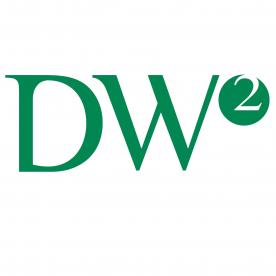
On October 3, 2023, the Minister of Innovation, Science, and Industry (the Minister) sent a letter to the Chair of the Standing Committee on Industry and Technology that summarizes the areas in which the Government of Canada will propose amendments to Bill C-27, the Digital Charter Implementation Act. In the letter, the Minister highlights key proposed changes to the Consumer Privacy Protection Act (CPPA) and the Artificial Intelligence and Data Act (AIDA) that are based on feedback received from stakeholders.
The Minister highlighted three areas for amendment to the CPPA:
- Privacy as a Fundamental Right. The Government will provide revisions to the preamble and purpose statement of Bill C-27 that will serve to expressly recognize privacy as a fundamental right.
- Protection of Children’s Personal Information. The proposed amendments will require organizations to consider the special interests of children when determining whether their personal information is being collected, used, or disclosed for an appropriate purpose.
- Commissioner’s Powers. To address concerns that the Privacy Commissioner cannot levy a financial penalty on non-compliant organizations, the Minister’s proposed amendments would permit the Privacy Commissioner to enter into compliance agreements that include financial considerations.
With respect to the AIDA, the Minister highlighted the following amendments that will serve to bring greater clarity while preserving flexibility in the legislation to respond to a rapidly evolving technological environment:
- Defining High-Impact Systems. The proposed amendments would assist in clarifying the meaning of “high-impact” systems by setting out an initial list of specific classes for such systems. The list of classes is currently set to include artificial intelligence (AI) systems used for:
- employment-related purposes, such as hiring and promotions;
- determining whether to provide services to an individual, the costs and types of services to be provided to an individual, or the prioritization of the services to be provided to individuals;
- processing biometric data for identification purposes or for determining an individual's behaviour or state of mind;
- online content moderation on online communications platforms, including search engines and social media;
- healthcare or emergency services;
- decision-making by courts or administrative bodies; and
- assisting a peace officer in the exercise and performance of their law enforcement powers, duties and functions.
- Alignment with EU and OECD Standards. In order to demonstrate alignment with international frameworks, such as those relating to the European Union and the Organisation for Economic Co-operation and Development (OECD), the proposed amendments would broaden the scope of AI systems covered in the AIDA. Among other changes, the amendments include modifying the AIDA to align with the OECD definition of AI.
- Creating Clearer Obligations Across the “AI Value Chain”. The proposed amendments would clarify the obligations of different actors in the value chain, namely, developers of machine-learning models that are intended for high-impact use, developers of high-impact systems, persons who make high-impact systems available, and persons who manage the operations of high-impact systems.
- Distinct Obligations for General-Purpose AI Systems. The proposed amendments would be drafted to create distinct requirements for general-purpose AI systems like ChatGPT. In addition, the Government plans to propose amendments that would ensure that AI-generated content can be identified by Canadians.
- Role of the AI and Data Commissioner. The Government plans to support amendments to clarify the functions and roles of the AI and Data Commissioner.
Summary By: Victoria Di Felice
E-TIPS® ISSUE
Disclaimer: This Newsletter is intended to provide readers with general information on legal developments in the areas of e-commerce, information technology and intellectual property. It is not intended to be a complete statement of the law, nor is it intended to provide legal advice. No person should act or rely upon the information contained in this newsletter without seeking legal advice.
E-TIPS is a registered trade-mark of Deeth Williams Wall LLP.
